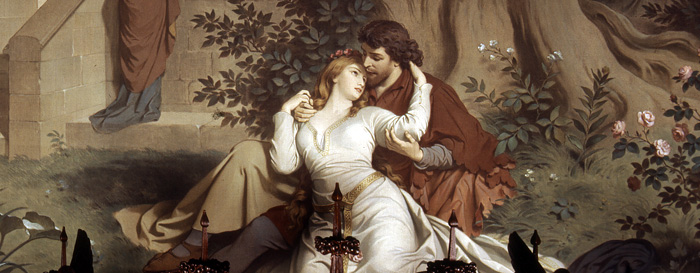Tristan and Isolde is an opera in three acts by Richard Wagner to a German libretto by the composer, based largely on the 12th-century romance Tristan and Iseult by Gottfried von Strassburg. It was composed between 1857 and 1859 and premiered at the Königliches Hoftheater und Nationaltheater in Munich on 10 June 1865 with Hans von Bülow conducting.
Isolde, an Irish Princess in a Middle Ages legend, is on board a ship from Ireland to Cornwall, as she marries King Marke who governs Cornwall. Isolde has already fallen in love with Tristan, the King’s loyalist and his nephew. She compels him to take poison with her because she detests the idea of marrying King Marke. However, her maid, Brangane, prepares medicine of love instead of poison. When their ship calls at the port, they have already fallen passionately in love with each other. When King Marke goes out hunting, his wife, Isolde, meets secretly with Tristan. By chance, King Marke appears there. Tristan doesn’t apologize for his actions. The King’s other loyalist, Melot, rushes forward, and hacks at Tristan. Tristan drops his sword and he is wounded. In Tristan’s home castle in Brittany, France, Tristan lies severely wounded, tended by his attendant, Kurwenal. Kurwenal calls Isolde for Tristan. But Tristan has already died when she appears. Isolde’s destiny is decided. She chooses kill herself, and join Tristan in the afterlife.
Wagner’s composition of Tristan und Isolde was inspired by the philosophy of Arthur Schopenhauer (particularly The World as Will and Representation), as well as by Wagner’s affair with Mathilde Wesendonck.
The opera was enormously influential among Western classical composers and provided direct inspiration to composers such as Gustav Mahler, Richard Strauss, Alban Berg, Arnold Schoenberg, and Benjamin Britten.
Although critical opinion of the opera was initially unfavourable Tristan and Isolde is now widely performed in major opera houses around the world.


